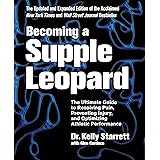Navigating 2024 Weight Loss Trends: Beyond Quick Fixes for Sustainable Health
Research indicates that an estimated 45 million Americans embark on a new diet each year, yet a staggering majority struggle with long-term weight loss success. As Dr. Ashley Lucas thoughtfully explains in the video above, achieving sustainable weight loss extends far beyond calorie restriction or intense exercise alone. True weight management success necessitates a holistic approach, addressing not only the physical aspects but also the deeply ingrained mental and emotional connections tied to food and body image. This comprehensive perspective is essential for anyone seeking lasting health and vitality rather than fleeting results.
The landscape of diet and nutrition is constantly evolving, with new trends emerging and old ones resurfacing. Understanding these weight loss trends, critically analyzing their purported benefits, and recognizing their potential drawbacks becomes paramount for making informed choices. Dr. Lucas, drawing from her extensive academic background as a PhD in sports nutrition and chronic disease, alongside her practical experience as a Registered Dietitian and personal struggles, provides invaluable insights into navigating this often-confusing terrain. Her journey, transitioning from a professional ballet dancer constantly battling body image and restrictive diets to a leading expert in weight management, underscores the profound importance of finding a truly sustainable and body-nourishing path.
The Personal Journey to True Weight Management Wisdom
Dr. Ashley Lucas candidly shares her own powerful story, revealing a lifetime of navigating the pressures of body image and restrictive diets. As a highly successful professional ballet dancer, she pushed her body to extreme limits, often restricting calories severely and engaging in excessive exercise. Despite these efforts, she recounts being told she was “fat” numerous times, highlighting the profound disconnect between perceived societal ideals and actual physiological health. This relentless struggle culminated in a terrifying ER visit in New York City, where she was diagnosed with being dangerously underfed and over-exercised, forcing an abrupt end to her dancing career.
This pivotal moment ignited a passion for understanding true nutrition and its impact on performance and health. Dr. Lucas pursued a PhD in sports nutrition and chronic disease, followed by becoming a Registered Dietitian. Through her academic pursuits, she discovered that much of the conventional “dietary wisdom” – such as “eat less, move more” or “everything in moderation” – simply did not align with her personal experience or cutting-edge scientific understanding. She experimented with countless popular diets, including the Zone Diet, low-fat diets, vegetarianism (for a decade, consuming much soy), the watermelon diet, Atkins, South Beach, Slow-Carb, Weight Watchers, and the Blood Type Diet. Each one offered temporary hope but ultimately failed to provide lasting health or sustainable weight management.
Her transformation began 15 years ago when she shifted her focus towards ancestral eating patterns, studying works like “The Primal Blueprint” and the Banting Diet. By embracing whole foods, healthy fats, and listening to her body’s intrinsic needs, she found balance. She stopped chronic cardio, discovering that her body became healthier and less inflamed, even while exercising significantly less and eating more food. This profound personal journey underscores her belief that sustainable weight loss is about truly understanding your body and letting go of the emotional baggage associated with past dieting failures. It emphasizes the critical role of individualized nutrition and a holistic approach to health.
Unpacking Popular Weight Loss Trends for 2024
As we navigate the continuous stream of new weight loss trends, it’s crucial to evaluate them through the lens of sustainability, whole foods, and holistic well-being. Dr. Lucas identifies several prominent trends for 2024, urging us to consider their pros and cons carefully before adopting them. Many of these approaches, while offering immediate appeal, often fall short of providing lasting health benefits.
Trend 1: The Plant-Based Diet Debate
The plant-based diet continues to gain popularity, often chosen for perceived health benefits, environmental concerns, or ethical reasons. However, Dr. Lucas’s extensive research and experience with over 8,000 clients over 15 years reveal a more nuanced picture. She highlights the significant challenges in interpreting nutrition studies, many of which are poorly designed or funded by entities with specific agendas. For instance, the infamous “Seven Country Study” by Ancel Keys cherry-picked data to support a hypothesis that lower fat consumption leads to reduced cardiovascular disease, ignoring contrary evidence from numerous other countries.
Additionally, Dr. Lucas explains that food frequency questionnaires, a common research tool, are often inaccurate because people struggle to recall their eating habits over long periods. Moreover, many studies fail to account for the holistic lifestyle factors often adopted by vegetarians and vegans, such as increased activity, meditation, or reduced smoking and drinking. A recent study, controlling for lifestyle factors, even found that meat-eaters, on average, lived longer and healthier lives. From a personal standpoint, Dr. Lucas experienced anemia and high body fat as a vegetarian, noting significant improvements in her health upon reintroducing animal protein. While environmental arguments are often made, large-scale plant agriculture also contributes to habitat destruction and increased pesticide use. Conversely, properly managed regenerative agriculture, involving grazing animals, can actually sequester carbon in the soil and promote ecosystem balance. Thus, the complexities surrounding plant-based diets, particularly for those striving for weight loss and optimal health, often present more challenges than straightforward solutions without careful planning and supplementation.
Trend 2: App-Based Weight Loss Programs
App-based weight loss programs offer convenience and data tracking, appealing to individuals who enjoy a biohacking approach to health. These programs are accessible from home, providing structured guidance at one’s fingertips. However, the lack of personal interaction presents a significant drawback. Dr. Lucas emphasizes that human connection and tailored support are crucial for sustainable weight loss, which often involves navigating deep-seated emotional and behavioral patterns. Automated systems simply cannot replicate the nuanced coaching and empathy provided by a human expert.
For many, weight loss can feel like an addiction recovery process, requiring consistent human touch points and a sense of community. App-based solutions typically fall short in providing this critical level of psychological and emotional support. Without ongoing, customized guidance, especially during the maintenance phase, individuals may struggle to sustain their results. The transition from losing weight to maintaining it requires a different set of strategies and continuous reinforcement, which an impersonal app may not adequately deliver. Therefore, while convenient, these platforms often lack the comprehensive support needed for long-term weight management success.
Trend 3: Peptides and Weight Loss Medications (e.g., Semaglutide, Tirzepatide)
Medications like semaglutide (Wegovy) and tirzepatide (Mounjaro), originally developed for Type 2 diabetes, are increasingly being prescribed for weight loss. These drugs act as GLP-1 and GIP agonists, mimicking natural hormones to signal fullness, slow digestion, and regulate blood sugar. Tirzepatide, for example, has shown promising results, with many users achieving 20-25% weight loss, surpassing the 15% seen with semaglutide. They can also offer cardiovascular benefits, such as reduced blood pressure.
However, the cons are substantial. These medications are prohibitively expensive, costing around $16,000 annually, and are often not covered by insurance for weight loss alone. More critically, they typically require lifelong administration; discontinuing the drug often leads to weight regain. Many users report severe side effects, including abdominal pain, nausea, and diarrhea, leading to discontinuation. Furthermore, these drugs can increase heart rate, which raises long-term health concerns. A significant issue is muscle wasting; a recent study indicated that 40% of the weight loss observed was from lean muscle mass. Maintaining muscle mass is vital for metabolic health and longevity, especially as we age. Individuals on these medications must proactively engage in strength training and consume adequate protein to mitigate this muscle loss. There’s also an increased risk of thyroid cancer, particularly for those with pre-existing thyroid conditions. Dr. Lucas stresses that while these drugs can facilitate initial weight loss, they do not address the underlying lifestyle and behavioral factors, making holistic support crucial for preventing weight rebound.
Trend 4: The Whole30 Approach
The Whole30 program functions as a 30-day “reset” for eating habits, focusing on whole, unprocessed foods and eliminating problematic categories like sugar, alcohol, grains, legumes, and dairy. While not exclusively designed for weight loss, many participants experience initial weight reduction due to cleaner eating. The program’s strengths lie in its emphasis on nutrient-rich whole foods, which raises awareness about food choices and can improve digestion. It encourages mindful eating and helps identify individual food sensitivities. By removing common inflammatory foods, individuals often report improved energy and reduced cravings.
Nevertheless, a significant portion of the initial weight loss on Whole30 is often water weight, not fat. While beneficial for a short-term reset, its highly restrictive nature can be challenging to maintain long-term. The strict rules, while helpful for identifying triggers, do not necessarily teach sustainable, flexible eating patterns required for a lifelong healthy diet. Moreover, without a structured reintroduction phase and ongoing support, many individuals may revert to old habits once the 30 days conclude. This trend, while effective for short-term detoxification and awareness, may not fully equip individuals with the tools for enduring weight management.
Trend 5: Juicing and Detoxes
Juicing and various “detox” programs have periodically surged in popularity, often promising rapid weight loss and toxin elimination. The perceived benefit is a quick cleanse and a feeling of lightness. However, Dr. Lucas provides a strong caution against these practices, particularly juicing. When fruits or vegetables are juiced, the beneficial fiber is removed, leaving behind a concentrated source of sugar and some vitamins. This absence of fiber leads to a rapid spike in blood glucose levels, followed by a compensatory crash, which is detrimental to metabolic health and overall energy regulation. These constant glucose fluctuations can contribute to increased cravings and further perpetuate unhealthy eating cycles.
Furthermore, juicing and extreme detoxes can lead to muscle wasting, as they often lack sufficient protein and essential macronutrients needed to support the body’s tissues. They are rarely sustainable and can disrupt natural digestive processes rather than enhancing them. While a short-term fast (two or three days) might offer certain metabolic benefits under guidance, prolonged juicing or detoxes are generally not recommended for lasting health or weight loss. The body naturally detoxifies itself effectively through its own organs, like the liver and kidneys, when supported by a balanced, whole-foods diet, rather than relying on restrictive, unbalanced liquid regimes.
Trend 6: The Enduring Keto Diet
The ketogenic diet, characterized by very low carbohydrate intake (typically less than 20 grams per day), high fat, and moderate protein, continues to be a prominent weight loss trend. Its therapeutic benefits extend beyond weight management, showing promise in managing conditions like epilepsy, certain cancers, Alzheimer’s disease, and dementia. For many, keto effectively reduces hunger and cravings, stabilizes blood sugar, improves triglyceride and lipid panels, and enhances mental clarity by promoting a state of ketosis, where the body burns fat for fuel instead of glucose.
In contrast, the keto diet is notoriously difficult to sustain long-term due to its extreme restrictions. Many individuals struggle to adhere to such low carbohydrate limits indefinitely, often leading to a rebound once they deviate. The initial phase, commonly known as the “keto flu,” can also deter new adherents, although this is often a temporary detox symptom, often due to electrolyte imbalance. It is imperative for individuals considering the keto diet to consult with their doctor, especially if they have underlying health conditions or are on medications for blood pressure, as sodium intake needs careful management. While powerful for specific therapeutic applications and effective for short-term weight loss, the strictness of the keto diet often makes it a challenge for individuals seeking a flexible, sustainable lifestyle change.
Crafting Your Path to Lasting Weight Loss Success
Ultimately, Dr. Lucas’s profound message is to shift away from fleeting diet trends and embrace a personalized, holistic approach to weight loss and health. She emphasizes several critical pillars for achieving sustainable results that truly transform your body and mind.
Beyond Calories: A Holistic View
Effective weight loss is not merely about calorie counting or point systems; it delves into the intricate interplay of physical, mental, and emotional well-being. Focusing solely on caloric restriction often ignores the complex hormonal responses, metabolic adaptations, and psychological factors that influence satiety, energy levels, and food choices. A truly holistic approach considers how certain foods impact your gut microbiome, hormone balance, and even your mood. It also means recognizing that the emotional attachments to food and body image are as significant as the physical act of eating. Addressing these deeper layers helps foster a sustainable relationship with food and one’s body, preventing the cyclical pattern of weight gain and loss.
The Power of Personalized Support and Accountability
Navigating the journey of weight loss requires more than self-discipline; it demands robust support and consistent accountability. Generic meal plans or exercise routines rarely account for individual medical history, lifestyle, preferences, or unique metabolic needs. A personalized approach, guided by an expert, ensures that strategies are tailored to your specific body and circumstances. This includes customizing nutrition plans that work with your biology, not against it, and providing psychological support to address habits and behaviors. Regular check-ins and genuine human connection with a coach or community provide the encouragement and problem-solving needed to overcome obstacles and maintain momentum. This level of personalized engagement significantly increases the likelihood of long-term success, helping individuals build new, enduring healthy habits.
Prioritizing Maintenance for Long-Term Results
Dr. Lucas profoundly states that “maintenance is where the work is to be done.” While losing weight often grabs headlines, sustaining that weight loss over time is the ultimate challenge and true measure of success. Many programs neglect the critical maintenance phase, leaving individuals without the continued support and strategies needed to navigate everyday life while keeping the weight off. This phase requires reinforcing new habits, developing resilience against triggers, and adapting to a new identity. Just as it takes time to build a solid foundation for a house, it takes sustained effort and guidance to solidify new lifestyle changes. A truly effective weight management program extends its support for at least a year post-weight loss, providing a safety net and continued coaching to cement lasting behavioral transformations. Remember, if a program promises effortless weight loss without any commitment or work, it is likely too good to be true, and not a sustainable path toward optimal health and vitality.











